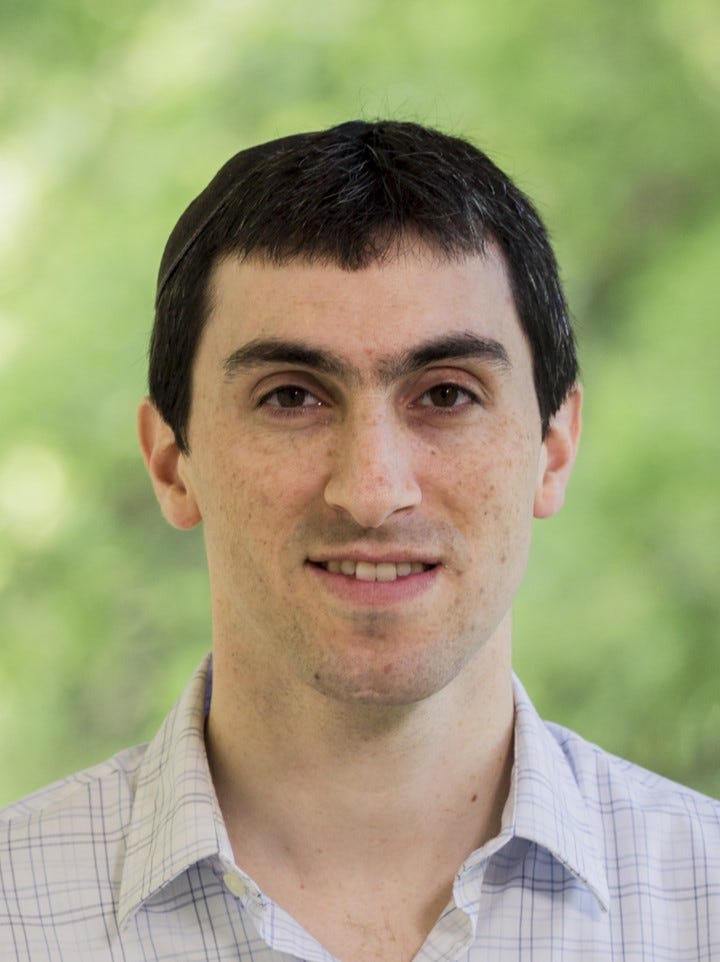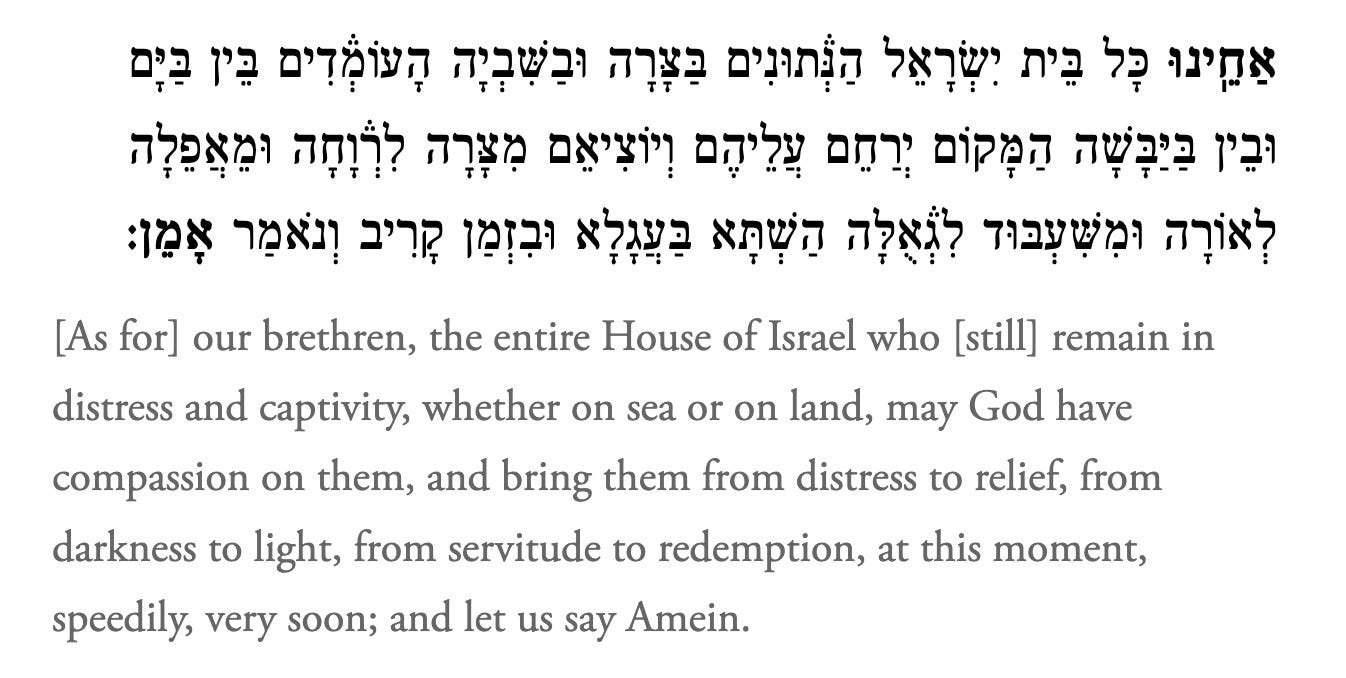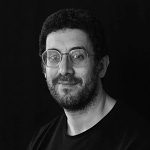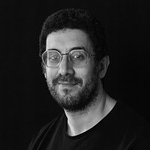A few months ago, in the early part of the summer, a friend who works with a massive American foundation called me to ask if I thought the war in Gaza would still be dragging on when the new American academic year started. I told him, obviously, that I had no idea and that I didn’t think anyone did, but if I had to bet money on it, then, yes, the war would still be going when US campuses returned for Fall Semester.
“Why do you ask?”, I asked him. He said he wanted to know because his foundation’s extensive research indicated that the pro-Palestinian, anti-Israel, anti-Jewish student “forces” on campus were going to be much better organized and prepared than they were in the Spring. “If the war is going is still going on,” he said, “it’s going to be hell for Jewish kids on campus.”
That may or may not pan out. It seems that at least some of the universities are much better prepared, though rumors of massive, nasty, hurtful protests planned for October 7 are already spreading.
In general, American campuses have not been the source of much good cheer or optimism for American Jewish students this past year, but not all of the news is bad. Some is actually fascinating and uplifting, and today we share some of that with you.
TAMID Group is an apolitical and non-religious nonprofit organization, whose work attracts college students from a range of backgrounds and experiences, those who love Israel, and those who have never been to Israel. They are top students who are brought together and through their involvement with TAMID gain an appreciation for Israel and a close relationship with Israelis and their peers.
In today’s podcast episode, I speak with the CEO of TAMID, Yoni Heilman, about their work and its impact.
Yoni Heilman is the CEO of TAMID Group where, together with a team of incredible professionals and impressive student leaders, he manages the overall strategic direction of the organization. This includes growth strategy, operations, fundraising, and, everything in between. Prior to TAMID, Yoni’s career spanned the nonprofit, for-profit, government, and military sectors. As Special Advisor to the CEO of Taglit-Birthright Israel, Yoni worked on organizational strategy and management during a period of 40% program growth. Following Birthright, Yoni was the COO of Online Jewish Learning, where he built critical systems for a fast-growing social enterprise. Earlier in his career, he worked at both the Knesset and the US House of Representatives. Yoni holds a Bachelor’s degree in International Relations from the University of Pennsylvania, an MBA from Boston University. He lives in modi’in, Israel with his wife, Gabrielle, and their three children Reut, Yaniv, and Eden.
For those interested in learning more about TAMID Group, we invite you to check out the links to the TAMID Group Website and the TAMID Group LinkedIn.
The link at the top of this posting will take you to the full recording of our conversation; below you will find a transcript for those who prefer to read, available specially for paid subscribers to Israel from the Inside.
We're living in an age in which it is super important for our souls, for our minds, for our commitment to and belief in the future to also hear about extraordinary things that are happening in addition to all of the sad and troubling things that we are confronted with on a day-to-day basis. And today on Israel from the Inside, we are going to do exactly that. We are going to meet Yoni Heilman, who is the CEO of the TAMID Group. TAMID Group, we're going to learn about in just a very short while, is doing things that we might not even be aware anybody in the world is doing, to build not only relationships with Israel, but support for Israel. And Yoni will tell us all about that in just a few minutes.
Yoni Heilman is the CEO of TAMID Group, where he manages the overall strategic direction of the organization. Prior to joining TAMID, Yoni's career spanned the nonprofit, for profit, government, and military sectors. Pretty much covers it, I think. As special advisor to the CEO of Taglit Birthright Israel, Yoni worked on organizational strategy and management during a period of 40% program growth. Following his time at Birthright, Yoni was the COO of Online Jewish Learning, where he built critical systems for a fast-growing social enterprise. Even earlier in his career, he worked at both the Knesset and the US House of Representatives. Yoni holds a bachelor's degree in International Relations from the University of Pennsylvania, an MBA from Boston University, and he lives in Modi’in, which is about halfway-ish between Jerusalem and Tel Aviv, with his wife, Gabrielle, and their three children, Reut, Yaniv, and Eden.
Yoni, first of all, these are crazy times. I know you're just back from reserve duty not long ago, so thank you very much for taking time to talk, to tell the world about the work that you're doing. Let's start with a brief history of TAMID. Where does it come from, before we get to what it's doing now, where did it come from? Where did the idea come from? What's its history? It's been around what, 15 years-ish?
Yes, yes. So, thank you for having me. TAMID was started 2008 by a couple of students, a couple of undergraduates of the University of Michigan, who were fighting the fight against BDS. They were standing up on campus and showing support for Israel. And they very quickly realized that the vast majority of the people on campus had no interest in what they had to say...
They were hostile?
Whether they cared about Israel or not, they didn't come to college to be activists. They were mostly hurrying past on their way to class. They realized they were too focused on the question of how do we convince people to think a certain way about Israel. And the question they needed to be asking was, what do people want and how can we make Israel a part of that?
What do they want unrelated to Israel?
What do they want for themselves? What draws their interest?
And then how does Israel help provide that?
Exactly. This was before Start-Up Nation book came out, but Israel was already a rising star and becoming much more well known in the field of research and development and entrepreneurship. And they realized most students, they come to college, they want to be successful, they want to build a career. And so, they built what was initially for the first three years, just a club of a few students at Michigan. Their entire programmatic structure was essentially teach students about Israeli innovation and then give them the opportunity to work with Israeli innovators.
Well, how does a couple of college students at Michigan make it possible for students to work with Israeli innovators? What kind of entree do they have to anybody's office?
Well, you know, it's the Jewish networks. Somebody's uncle's brother's cousin works somewhere in Tel Aviv.
And that's how they did it?
That's how they did it. At a certain point, one of the students began on winter break, he would travel to Tel Aviv and knock on doors and pitch. In the second year, they started an internship program, and one of my colleagues was one of the first five students who came to Israel for a summer internship. This is in 2009. There weren't internships in Israel in 2009. I asked him, how did he manage to get that? He said he made a list of companies he wanted to work for in order of priority, and he'd call them one by one. And he would say, “Congratulations, you've won a free intern from America”.
That's actually a cool approach.
It's a very Israeli approach, actually. And that's how we got started.
So, who was funding them at this early stage?
Nobody. Nobody was funding them. This was undergraduates.
It was all out of pocket.
There was nothing to raise money for.
But if they wanted to come to Israel for an internship, they paid their own way.
There was a little bit of friend-raising. Very early on, they got themselves in front of two major funders, the Singer Foundation and the Schusterman Foundation.
Those are pretty heavy hitters.
Very heavy hitters. And they really helped incubate the organization. And fast forward to 2015, I found myself interviewing with a whole bunch of college students to be their, sort of the first professional to take over what was at that point already a program on 23 college campuses. And it had just gotten too big for undergraduates to manage it in their free time.
So, you were the first real professional that they hired?
Yes.
2015.
There was a brief inter loop, but yes.
Okay, so it's almost 10 years ago.
Almost 10 years ago.
All right, so now let's go back to September. I want to come back to, October changes things. The war changes a lot. Your own experience in Gaza in its own crazy way changes a lot. So, let's go back to September. Things are rosy. We're just on a verge of civil war. We're pulling ourselves apart over a judicial reform. But that's not relevant, really, to TAMID directly. Where is the organization in 2022, the first half of 2023? How big is it? What's it doing? What's its purpose? If you had met a donor at that point, let's just say, hypothetically, December 2022, and you say, here’s why we need your support. Here's going to be our impact on the Jewish world. Here's going to be our impact on people's relationships to Israel. What's the story you would have, truthfully, of course, told?
Sure. So, end of 2022, beginning of 2023, we are about 3,500 students on close to 60 college campuses, mostly in North America, but not exclusively. What we talked about was the fact that we were engaging people with Israel who were otherwise unengageable. The vast majority of our students, about 80%, don't do anything else on campus connected to Israel. Many of them, about 30% are not Jewish. Some of our campuses are in places like China and India. The reason is because the vehicle for engaging our students is their own self-interest in career groups.
So, if I'm one of those students, whether I'm Jewish or not Jewish, but I'm totally not an Israel advocate, and I say I'm involved with Tamid, or you look at me and you say, yeah, that's one of our students. He's involved with TAMID. What does that actually mean in my life? I'm majoring in, let's say, economics or business administration, whatever. What's the TAMID part of my life look like?
Well, first of all, you encounter TAMID at a club fair in your freshman year, and you are looking for a place to further your career. You're considering, should I join the business fraternity or the banking club or TAMID group? And if I stopped and asked you at that point, top five reasons for joining TAMID, Israel is not a factor. You're looking for a professional development. You're looking for a real-world experience. You're looking for a strong network. You're looking for a community. Israel is not a factor. And then you apply.
Well, you know that Israel is part of it when you apply, though, right?
You know that Israel is a part of it. But for a lot of students, Israel is the vehicle. If you want to be successful in your career, you should learn from the best. And that's the pitch.
Okay, so I'm on campus, whether it's Michigan or one of a number of dozens of other campuses. I go to the fair and I say, okay, there's the business club, there's the venture capital training, whatever the hell it is. And there's a TAMID group. And I sign up or I apply.
You apply. You interview. Some chapters, it's a pretty rigorous process. We have several chapters where it's harder to get into the club than into the university.
Okay. And what are you looking for when you're interviewing me?
Not me.
I know that, but I'm saying you, the group...
Passion, drive, seriousness. If you ask our students, how many non-active members do you have? They'll say none. We kick them out. This is a rigorous process.
So, what does being active look like?
In your first semester, the new classes will come together once a week, and they will learn about Israel as a startup nation through the prism of business.
Who's teaching it?
Sometimes it's materials we've developed over the years. Sometimes they'll have local business people come on campus. Sometimes it's upperclassmen teaching, lowerclassmen using case studies. Think like a mini-MBA that's only using Israeli case studies. So, you might be learning strategy or operations or marketing or finance, all taught through the successes of the startup nation.
How big is the group of people that are studying on a campus?
An average chapter is about 60 students.
So, if I'm a freshman, there are 60 people in my…
No, if you're a freshman, there might be 15 to 20 in a new class.
Right. So, over the course of four years at my university, there are 60.
Right.
Okay. So the first semester, I'm taking these courses. I'm learning about other things that I might have learned if I was doing a business degree.
And you might be. Most of our students are learning business, finance, economics, although it ranges.
Okay, but it dovetails very nicely with what I'm studying, and I'm getting a very soft pitch about Israel because I know it's about Israel and the case studies are about Israel, but it's not, I didn't go to this thing for Israel.
But by the end of that first semester, you have a very strong understanding about why we think you should care about Israel. And you have a real appreciation for what it means when people reference the startup nation.
It's not about Zionism. It's about business tech excellence.
It's not about Zionism. We take a non-political, non-religious approach. For us, what that means is we're overtly about Israel, but we don't care what your religion or politics are beforehand, and we're not trying to change them.
Could I be a member of TAMID Group on campus and one of the protesters in the tents?
Absolutely. We had a student from….
I know we're getting to after October 7th....
Sure. But even before, we had a student from Columbia, the one in South America, South Central America, who was a student at a university that is not known to be particularly bastion in of pro-Israel support. He told us that his only exposure to Israel was a course entitled Palestinian Poets of the Late 1940s. And a student came up to him at the Career Fair and said, you should join TAMID. You should apply.
Was that a Jewish student or non-Jewish student?
Non-Jewish student. He said, I'm not into the Israel stuff. And this upperclassman said, that's totally irrelevant. What do you want to do with your career? And he said, I want to be in automotive tech. So, this upperclassman said, well, if you want a chance to work with some of the greatest startups in the space, you should join TAMID and he applied and he decided, I'm just going to hold my nose about the Israel stuff because they're not showing it down my throat anyway. And he applied, and he joined, and he came to Israel for a summer, and he found a very different landscape than the one he expected.
Right. Very different landscape than what came out of the class about Palestinian poetry.
Absolutely.
Okay. And then what's going to happen in my sophomore, junior years?
So, at the end of your first semester, now that you have gained an appreciation for who these Israelis are, now you get to work with them. From Michigan, from Lehigh, from Penn, from Harvard, from UCLA, wherever it is. Our students form teams, and then we pair them remotely with an Israeli startup for a semester-long project. We call them consulting projects. But we are pairing about 175 to 200 teams of students each semester with Israeli startups, and they work together on a project.
That is a huge amount of work on the part of your staff to put all this together.
It is.
That's just a lot of work. How big is the staff?
Staff is about 20, a little bit over 20. The key pieces are we have both a team that supports our students in the US, and we have a team in Israel that supports the companies. It's not an easy task to get an Israeli startup to figure out a way to engage the team of American college students.
By the way, using interns in a smart way is never easy. Before Shalem was a college and we were a think tank, we had college students from America, you know, Harvard, Princeton, Yale, those kinds of kids coming through every summer to be research assistants. And what I think our faculty back then, or our staff, or whatever they were, fellows, learned is you can't just flop a pile of stuff at somebody and say, here, research this for me. You have to actually spend time with them every day to guide them, to teach them, to give feedback on what they're finding, to ask them more questions, to redirect them. So, even these companies learning to use these people, it's a learning process for the companies, too, I'm sure, or whoever the professionals are in the company who's working with the team, I'm just guessing. So, they actually benefit from it also because you become much better at your job by having to work with people like this who are not yet…
The companies have to benefit from it because otherwise, we burn every bridge. My first summer working for TAMID, the first Israeli CEO I met, I said to him, tell me why you're wasting all this effort on a spoiled 19-year-old American college student. That's what I said. And I thought he would say Zionism or giving back, or I see myself in this person. He said, value. I said, BS. And he I said, listen, I have a startup. I don't have a side project. I don't have an intern project. I have the thing that needs to get done. Your students are smart enough to be dangerous. They're incredibly driven. They have access to university resources. They understand the culture and the market I'm usually trying to get into, and that's what I need. If I use them wisely, they'll leapfrog me forward, 3, 6, 9 months.
So, this is the second semester of their first year?
Right. After their first semester, they can go into these consulting projects, and they can do it for several semesters, rise through the ranks, become a project manager or even the leader of the consulting project. We also have a finance track for the financially minded. We were originally TAMID Israel Investment Group because they were more banking-oriented, and they do assessments of Israeli publicly traded companies and build a portfolio and learn how to navigate that. Then they rise through the ranks, and they become leaders of chapters, all the recruitment, all the social engagement, all of the guidance and mentorship that happens within each campus. We have 60 campuses. I have, I think, five full-time staff working within those 60 campuses, what's now more than 4,000 students.
Wow. And about 30% you said are not Jewish?
About 30% are not Jewish, right.
Okay. And then at a certain point, they get here, right?
At a certain point, so the best of the best. Not everybody gets here. The best of the best to apply again to come to Israel for a full summer's internship. It's usually between their second and third year. Sophomore and junior. Our rising juniors, the ones who are becoming seniors, they don't give us that summer. They are booked at Goldman Sachs and Deloitte and whatever it is.
And they come here, we usually get about 200 in a year. And they live in Tel Aviv, and they work full-time at the most amazing companies in the world, and then they go back, and they run the chapters. This is our leadership pipeline. This is not just for those 200 students. For me, it's the impact multiplier on the rest of those students. It's a unique experience. The first couple of summers, there's always a mother who gets my phone number somehow. I've learned that all mothers are Jewish mothers. I always get a call, and somebody calls me up and says, how's my daughter going to get from the airport to her apartment in Tel Aviv? And having worked at other organizations, I know that the proper answer is someone's there to receive them, we put them on the bus, they can't get lost, etc. But that's not this program. And I explained, from the back, there are safety and security and counselors. We know where they are at all times, but your daughter is a grown up. And she's going to go to the taxi stand and she's going to tell them the address. She's going to get in the cab and she's going to go to her apartment. And when she gets there, we'll orient her, but then she's going to get a bus pass, and she's going to commute.
Right and there's an app that's going to show her how to get there.
This is not a program with free time. This is an apartment and a job and evening programs. And then you live in Tel Aviv. And hopefully at the end of it, you come away feeling a little bit Israeli.
How long are they here for that summer?
They're here for eight weeks.
That's a long time. You can get a lot done. You can learn a lot. You can meet a lot of people.
Absolutely.
You can make a big contribution to a company in that amount of time. So, like every conversation in Israel these days, doesn't matter what it's about or who it's with. There is a before and there is an after. October 7th is the watershed line. It's the world before and the world after. And on the surface, one might think, okay, TAMID Group, it's a really cool program, but it's about business. And Israel suffered a horrible, devastating day, and it's in a terrible war. They're in the same country, but they're really unrelated phenomena. And so TAMID Group will just chug ahead as best as it can in a time that's very difficult. But in your own mind, and then after your own mind in the actual workings of the organization and its vision and its goals, a lot of things changed. So, tell us a little bit about how a terror attack changes a business program.
Right. So, you have to realize that before October 7th, we described our mission as building strong connection to Israel for the next generation of business leaders. The way that we did that, and the reason we were able to engage such a broad audience, is that we were not selling Israel, the Jewish state. We were not selling the only democracy in the Middle East. We were essentially selling Israeli and Israelis. Israeli culture. And that's why, to a large extent, we kept our head down whenever it became political and navigated it and then restrengthened afterwards.
And then came October 7th. And at first, I had no idea what happened because on October 7th, I, along with 350,000 other Israelis, jumped in my car, put on my uniform, and went off the grid. For me, it was till the middle of February.
And you were in Gaza part of the time?
Our unit was around Gaza and then in Gaza, yes.
So, you were in Gaza just curious for how long?
Our unit was in Gaza for, we spent the first two months, a lot of the units that went straight into Gaza, trained for three weeks, and then when the ground operation started, they went in. Our unit went right into the area where the terrorists had invaded. Our sector was from Re’im, Be’eri, the Nova Festival, Alumim, Kfar Aza, that area. We went in right away, cleared it up. When the ground operation was a month in, and we had essentially secured that outer perimeter of the envelope, then our unit went into three different sectors successfully in Gaza, again, taking us up till end of January, beginning of February.
All right, so you get out of Gaza and the reserves for that time. I know you've been in again since, but you get out in February. It's been four months. What's changed in your own thinking?
Well, I haven't really thought a lot about work. It's very hard, technically and emotionally, to connect with anything going on outside of that world. And it’s mostly reserved for my family. But I get home, and like most reservists, there's that question of, am I doing something meaningful with my life? And I'm very lucky because all I had to do is open my inbox and catch up on four and a half months of messages. And what I found astounded me. All of my metaphors are military, so I'll take you back for a moment to my basic training, the basic training of an infantry soldier, one of the core experiences is this thing called the masa, which is loosely translated as a march, but really, you put on all of your gear and you're running through the night, 10, 20, 30, 40, 50 kilometers.
And you're carrying something with you.
You're carrying all of your gear, but so, an hour and a half before the end, your commander stops you, points at the heaviest soldier and says, he's injured. Now you have to carry this guy the rest of the way on a stretcher. And the way you do it is you got two guys in front and two guys in back on the stretcher. The rest of the unit is strung out behind in two lines. And every 30 seconds, there's a rotation. The guys in the back move forward, the guys in the line move up to take the back. No one's carrying the stretcher for more than 60 seconds. And then you come over the hill and you see the base and you come through the gate and there's this feeling of euphoria finally being done. Except that same commander, he wants to make a speech now. So, now everybody's standing there while this guy talks and there's four guys holding the stretcher and there's no more rotations. So, somebody calls out, “kulam mitachat ha’alunka.” Everybody under the stretcher. And the whole unit physically gets under the stretcher. And that metaphor of getting under the stretcher, it's a very common metaphor in Israeli life, not just in army contexts. It's the feeling that I felt on October 7th. I think many of us felt wanting to get under the stretcher and do something. And to my surprise, in early February, I found that our members had had the same experience. On October 7th, when Israel was suddenly plunged into this horrific war, we had 175 teams of students reaching out to their Israeli counterparts saying, what's going on? How can we help? What more can we take on? Essentially backfilling for these startup executives who were being drafted, who were dealing with unimaginable losses. I found emails in my inbox from CEOs saying, I can't believe how your students carried us through the end of the year, and we need them in the spring. And I realized that it's not just that we're building connections to Israel. It's that our students have the opportunity and the drive to act, to step in, to get under the stretcher. When times are good, I think that the relationships that we build bring the best of Israel to the world. But when times are bad, our members are there to get messages from non-Jewish students saying to me, thank you for your service in the IDF.
Wow. It's a very American phrase, but still, it's unbelievable.
Yeah. Look, we have an alum who read the book Startup Nation, and he, during his mandatory military service in the far East and tried to model his unit based on what he had read in that book. Then when he got to Yale, of course, looked to join the TAMID chapter.
Now, here we are. And I see that our students have been engaging and supporting. Even our alumni, they're reaching out and saying, how can I help these companies? I know price modeling. Are there any startups who are preparing to pitch to a venture capital firm and I could help them with that?
And so, I came back with two feelings. The one is this tremendous amount of pride about what our members did. And the second was this feeling that we are far too timid in our goals and we're not deploying all the tools we could deploy.
Well, how are the goals too timid?
Well, we talked about building connections, building a relationship between our students, our future leaders in Israel. Why can't we just say we want to see them tangibly, objectively, quantifiably engage with Israel? I want to look at our 30-year-olds, our 35-year-olds, and see that they are investing in Israel, and they're doing joint ventures with Israeli startups, and they are traveling to Israel, and they're, and if their opportunity hasn't given them that, if life hasn't taken them down that route, so they have a feeling of connection, and they have an intellectual appreciation for what Israel is and who Israelis are.
So, the TAMID Group just on steroids, basically.
Exactly. We didn't change... Especially with donors, I try not to use the phrase everything changed for us because the truth is we're not doing anything different. It's just that I have a sharpened sense of what we're capable of and I am wholly unsatisfied with how much we are doing, because what we've done is we have grown in terms of our size, we have grown in terms of our quality, and we just haven't kept pace financially. And so, when I got back, my Chief Development Officer said, I think we need to do some fundraising. Are you in that space mentally? And I said, absolutely. And she said, let's set you up for a fundraising trip to the US in May. I said, let's not assume I'm available in May, okay, let's do it in March.
And you went.
And I went.
So, use the military metaphor because you raised that, so this is basically TAMID Group with the afterburners burning. You just flipped the switch, the afterburners there, and the jet just shoots ahead.
And then the encampments happened.
Well, that's exactly my question. That was exactly my question. So, you have, the world changes here, but then the world changes there. And life becomes very complicated for people who have any positive association with Israel on a lot of American campuses, not all of them, but a lot of them.
Tell me how this affects the work of the TAMID Group. How does it affect the work of the people who did have a passion for Israel? How does it affect non-Jewish students who really didn't have a dog in the race but had a positive association with Israel as a business thing? What happens on campus and how does it affect your work?
Well, first of all, you have to understand that in late fall and early spring, we have record demand on campus. We have a record numbers of students who are applying to join our chapters. And we have students from more than 40 universities where we don't have chapters reaching out and saying, I've heard about TAMID. Why doesn't it exist on my campus? How can I build one? Which is how all of our chapters have come about.
You don't go knock on anybody's door. They come knocking on your door.
We have never knocked on anybody's door. All of this is in down demand. And then the encampments starts. And the first thing that happens, actually, is the Israelis reach out to their student counterparts and say, what’s going on? How are you guys doing? How can we help?
So, it's the exact opposite of what happened on October 7th.
Exactly.
It's actually very moving.
It's incredible. And there's something about that relationship, which we used to say, how amazing is it that these students who interned at this startup in 2013 and now in 2024, they're doing business with the same people together. But it's not just that. There's a different... There's a relationship there.
So, in April, I was in the US, in early April, and I had occasion to have dinner with the chapter presidents of our New York City area chapters. I looked at them and I said, tell me what it's like running a TAMID chapter on campus these days. The chapter presidents of Columbia looked at me and they said, first of all, don't worry. We've been blacklisted as a Zionist organization like everybody else. We've made the list. But the second thing she said was, we're not an advocacy organization. We are activists, but our activism is not walking through campus carrying an Israeli flag. It's sitting in our dorm rooms on a Zoom call with Israelis, helping them run their companies. We fly below the radar in terms of the noise that's happening on campus. We feel like we're really the activists. We're really making things happen. We're getting things done.
People are in pub tents on campus getting nothing done.
Absolutely. Which means, do I think that our demand from non-Jews will dip? Sure, it will dip to some extent. However, remember, those prospective freshmen, they don't join TAMID because of Israel. They're still thinking about, how am I going to How am I going to land that first big job? How am I going to set myself apart from my peers? The answer that we have is still a very credible one, which is you're going to make yourself a little bit of an Israeli. You're going to learn to be Israeli. You're going to think like an Israeli. I think that that's going to persevere through the noise that we're seeing on campus.
I think about one of the undergrads who interviewed me when I was applying for this job in 2015. A guy named Jared who grew up, was born Jewish, but it wasn't part of his identity. Israel was not part of his identity. He went to college in California, and he wanted to be an entrepreneur. And so, he applied for it, and he joined TAMID, and he found himself in Israel on a summer internship. And he told me that two weeks into his internship, he's riding the bus home, and he thinks to himself, these are my people. And I asked him, what do you mean? Do you mean they're Jews and they're secular? And he said, no. He said, they have so much chutzbah. They're going to change every problem. They're going to fix the world's problems. If you're 20 or if you're 90, but you're motivated, you're part of the team. That's who I want to be.
Wow. Yeah. It's just unbelievable on so many levels. I just got to ask this question. It just popped into my head. A lot of TAMID Group marriages?
Quite a few. We don't track it.
No, but I'm sure because it's a very intense experience…
It's an intensive experience and the average student joins TAMID for at least two and a half years. Our alumni programming is growing. We have right now, we call it business mission. I think of that more like a business trip. We have about a dozen Jewish and non-Jewish alumni who are here right now for a week of meetings in Tel Aviv, and we set them up with meetings with companies. Of course, they're going to also travel down south because they want to understand and bear witness.
So, speaking of that, I'm beginning to wrap up. Talk to me a little bit about what you've heard from the non-Jewish students on some of these very problematic campuses since, let's say, the middle of spring semester and then going on. They've kept at it, I imagine most of them. I assume one or two, a couple of them have said, I just don't need this, and they've dropped out. That's inevitable. But have you heard anything, they strike me as a particularly interesting population. They got into this for business, but all of a sudden, now there's a lot of headwinds, and it's a choppy flight. They stuck with it. They didn't stick with it. Some are dropping out. More wanted one in. What's the story?
Our numbers are up, and the non-Jews have a lot of pride about being a part of this. They are familiar with Israel. They're familiar with Israelis. And so, their first reaction on October 7th was to identify with this trauma and to feel a part of it. I mentioned earlier our Columbia Chapter Presidents. They just finished their tenure and our new Columbia Chapter President is a guy named Felix. He's not Jewish. He's excited to be in a role where he can, first of all, make his fellow Chapter members feel safe and supported. He says he's got friends on the other side, and so he's teaching himself how to respond to them. It wasn't that he had to learn in order to respond. It's that he had to feel connected in order to find his voice. I think that that is, for me, what inspires me to continue to invest in growing this program because we're still able to reach people who are not otherwise going to be engaged with Israel. I'd like to be an absolutist and take the easy way out and say, Israel should just go it alone. The rest of the world is crazy. We're just going to do our own thing, but….
That's not going to work that way…
That's not the world. I spent enough time in the army to understand. I spent enough time opening cans of tuna to understand there are important relationships that allow us to thrive the way that we do. I believe Israel is an important contributing member of the international community. I think Israel can, in many ways, be a light unto the nations. But part of that is making sure that we have those relationships and we're engaging people across the spectrum, the Jews and the non-Jews, the ones for whom a way to engage with Israelis and Israeli innovators is very natural, and the ones for whom they wouldn't have thought about it. But now, they think of themselves a little bit as Israelis.
Yeah, it's really an amazing story. I have to say, as you're talking, I'm thinking I have one of my kids is actually CEO of a startup. He's in his mid-30s. He's an Israeli male, so he's the CEO of a startup, right? What else would he be doing? But he's actually, as we're having this conversation, he's called up in the reserves, and his startup is a very small startup. And every time one or two people leave, I'm thinking to myself, what does he know about TAMID Group? I wonder if we should hook him up or whatever.
Absolutely.
Okay, we'll do that. But that's a separate question. But my point is also I'm thinking it's been such a lonely for Israel, it’s been such a lonely, I don't know, six months. The United Nations, even Washington, D.C., at certain points, certainly European capital, certainly campuses. It's just been lonely. And it's felt devastating because we actually think that justice is on our side. We were attacked and we’re trying to defend ourselves. It's just gotten unbelievably lonely to hear these stories about Jewish students on campuses and non-Jewish students on campuses who are doing this, some of them perhaps because they're Jewish and they care about Israel, but a lot of it's a country of excellence and I just want to be part of it. It's a whole different way of telling our story, and it's a whole different way of building relationships than what we've thought. To be sure, all those other organizations out there that are part of the Jewish world and working with students, they do great work, and there's no disparaging anything about what they do, but the wind is against them because the front and the center of the story is about Israel, and therefore the conflict, and therefore you're really in the eye of the storm. This, as you said, the plane can go around the storm or through the storm or whatever it is, because there's something very different happening here, and it's the excellence of Israel and the creativity of Israel and the startup nation part of Israel that has nothing to do with Palestinians and nothing to do with Gaza, and just to do with the Jewish people rebuilding itself, and as a product of that, being excellent in a lot of things. That enables us to tell a very different a story.
And so, I just really, I hope that a lot of our listeners are saying to themselves, well, this was really, this is a part of the Jewish world or the part of Israel telling its story that I didn't even know existed. This is a way of telling the Israel story that has nothing to do with diplomats and ambassadors and soldiers and whatever. It's just the part of Israel we've always been proud of, the part of Israel that's excellent and letting excellent American students connect to excellent Israeli companies It's really, at the end of the day, part of what's going to make this country bounce back. For me, it's very inspiring.
My past board chair was an ed-tech entrepreneur, a great guy. And when he stepped into that role, he said to me, we have to have a pitch deck. We have to have a really good pitch deck. So, he got a guy, and they put this flashy deck together to go take the donors. And I remember there was this closing slide. He had this quote. It said, government policies come and go. Public opinion is fickle. If we want to support Israel's future, we need to build sustaining connections with business leaders. We can't leave the future of Israel to anyone else. And at the time, I remember thinking, this is like a great quote, but I'm not sure I buy it. And now here I am. And I realized it's not about economic ties. It's about personal relationships. It's about people tapping into what matters to them. I mean, that's how I got to TAMID. I grew up back and forth between Israel and the US, what I call bicultural personality disorder. And I want people to care for Israel the way I do. I recognize that it's not about selling Israel to them. It's about making Israel part of who they are and how they see themselves. I'm very lucky that that's what I get to do on a day-to-day basis.
Well, you're lucky that it's what you get to do on a day-to-day basis. But the Jewish world is very lucky that you do what you do. And the Jewish world and Israel are very fortunate that the TAMID Group is out there. I hope that a lot of the people listening will say, oh, I have a son, I have a daughter, I have a nephew, I have a niece, a grandchild, whatever, they should know about this. Maybe you'll get lots more campuses knocking on your door.
And hopefully 10 years from now when things are much better than they are now, there will be a lot of relationships out there that will be the fundamental foundation of the relationships between Israel and North American Judaism and North American people in general, that'll be able to point to what you're doing as a critical part of where it is. So, for who you are and what you do and what you've told us today, thank you very much. Stay safe when you keep going back in, which I know a lot of people are, and I wish you and your work continued success.
Thank you very much.
Music credits: Medieval poem by Rabbi Shlomo Ibn Gvirol. Melody and performance by Shaked Jehuda and Eyal Gesundheit. Production by Eyal Gesundheit. To view a video of their performance, see this YouTube:


















American Campuses, Zionism and Jewish (and non-Jewish) Students—Now for the Good News